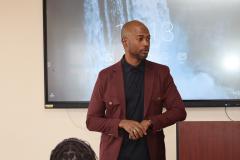VCs Weekly Higher Education Digest: April 8, 2019
Measures that matter: an innovation that credits social impact By John Gill TIMES HIGHER EDUCATION
It has long been a defining characteristic of world university rankings that they focus heavily on research…. [Today] we break the mould with a radically new approach, assessing impact and innovation by mapping more than 500 universities’ policies and practices against 11 of the United Nations’ Sustainable Development Goals.
https://www.timeshighereducation.com/opinion/measures-matter-innovation-credits-social-impact
THE University Impact Rankings 2019: Canada leads the way By Ellie Bothwell TIMES HIGHER EDUCATION
Universities in Canada are the highest performing institutions on average in a new Times Higher Education ranking focusing on universities’ social and economic impact. The Republic of Ireland and Australia were the next top-performing nations, with average overall scores of 85.1 and 81.6 respectively…. When it comes to overall representation, Japan tops the list with 41 ranked institutions. The US has 31, while Russia has 30.
https://www.timeshighereducation.com/news/university-impact-rankings-2019-canada-leads-way
Pillars of the Public Good By lmimms TRUSTEESHIP MAGAZINE
Higher education institutions—and their fiduciaries—have a duty to ensure they are operating in the best interest of the public good and are making a positive return on the public’s investment…. In these uncertain times, one of the most reaffirming and positive things boards can do is take time to appreciate their respective institutions’ efforts to advance the public good and to affirm public trust…. When was the last time your board discussed your institution’s contribution to the public good?
https://agb.org/trusteeship-article/pillars-of-the-public-good/
Digital Distraction Is a Problem Far Beyond the Classroom. But Professors Can Still Help By Beckie Supiano THE CHRONICLE OF HIGHER EDUCATION
Digital distraction is a major source of frustration for professors. They're split, however, on whether to do anything about it. Some believe the onus is on students to change their habits, while others see an overreliance on lecturing as at least part of the problem…. Professors, he said, can help students see the life of the mind as a key component of the good life, something worth protecting from the constant intrusion of social media.
https://www.chronicle.com/article/Digital-Distraction-Is-a/246074?cid=wsinglestory_7_1
Research Universities Need to Improve Their Teaching. But More Money Won't Help, a Philosopher Says By Beckie Supiano THE CHRONICLE OF HIGHER EDUCATION
The undergraduate education provided by research universities could be greatly improved without much expense. Not only is that, but making big public investments in such universities is a wrong approach for improving educational attainment or equity. That's the provocative argument of a paper scheduled to be presented at the American Educational Research Association's annual meeting on Saturday.
https://www.chronicle.com/article/Research-Universities-Need-to/246070?cid=wcontentgrid_7_1a
An intersectional approach to the future of learning By Philomena Mantella UNIVERSITY WORLD NEWS
It is true that the pace of technological advancements, the rise of artificial intelligence, the reality of socio-economic disparities and new modes of human communication create an urgency and necessity for our educational enterprises to change…. For the most part, change itself has largely been pursued as either evolution, handicapped by its laborious pace, or revolution…. We need a third, more agile approach to engaging with convention; one that hones in on the intersections of opportunity and possibility.
https://www.universityworldnews.com/post.php?story=20190403151148912
The coming ‘China crisis’ in global higher education By Philip G Altbach UNIVERSITY WORLD NEWS
Universities in major countries have come to depend on Chinese students for their increasingly important international student enrolments – and are to some extent dependent on these students to balance budgets and, in certain cases, to fill empty seats…. For the first time, China is itself active in international higher education. More than 440,000 students from abroad, the large majority from other Asian countries, are studying in China.
https://www.universityworldnews.com/post.php?story=20190403104242366
The publish-and-perish epidemic – Counting the costs By Damtew Teferra UNIVERSITY WORLD NEWS
The literature is awash with accounts of the dismal state of research in Africa, particularly due to the chronic shortage of funding. Indeed, African research has depended heavily on external funding as the continent offers little support for research. Based on publications, its institutions have the lowest research output. As illustrated above, an increasing portion of this meagre production of knowledge is being squandered by unscrupulous knowledge creators and vendors, with huge economic costs to nations, institutions and academia as a whole.
https://www.universityworldnews.com/post.php?story=20190326061756889
Colleges Are Banding Together Digitally to Help Students Succeed. Here’s How. By Alexander C. Kafka THE CHRONICLE OF HIGHER EDUCATION
Imagine data from millions of students, at dozens of universities that educators could analyze for sweeping trends but also sift down to the level of each participant in each lesson of every class. Now imagine cross-referencing that information with other stats on those students’ backgrounds and demographics. The resulting insights could elevate teaching and student success to a whole new level. A forward-looking consortium is building just such a database.
https://www.chronicle.com/article/Colleges-Are-Banding-Together/246002
When Grading Less Is More By Colleen Flaherty INSIDE HIGHER EDUCATION
When it comes to grading, less is more. So say a number of scholars who have shared their recent experiments with “un-grading” in blog posts and on other social media, sparking renewed discussions about the practice…. Still, un-grading is more common than one might think. And there are sound pedagogical reasons to do it, given the litany of research finding that grades play to extrinsic (not intrinsic) motivation, decrease enjoyment of learning and increase fears of failure. More than that, grades aren’t necessarily a good measure of student learning.
European copyright directive ‘opens door to mass digitalization’ By David Matthews TIMES HIGHER EDUCATION
Librarians believe that a new copyright directive passed by the European Parliament could open the door to the mass digitalization of books, films and audio recordings, potentially meaning fewer trips to distant libraries for scholars and students who need access to obscure material. After years of debate and protest, MEPs passed the European Union’s new copyright directive on 26 March, a move that could have significant implications for libraries and universities.
Doing More with Data By Paul Fain INSIDE HIGHER EDUCATION
A growing number of colleges and employers are working together to better use labor-market data in post-secondary training. Inside Higher Ed sat down with Ding and Gee a few months ago to discuss developments with outcomes and labor-market data in higher education. Excerpts from the conversation, which have been edited for clarity, follow below.
Hackers breach UK university defenses ‘within two hours’ By Anna McKie TIMES HIGHER EDUCATION
“Ethical” hackers were able to access high-value data within two hours at every single UK University that they tested for security, according to a report. The study, published jointly by sector technology body Jisc and the Higher Education Policy Institute, warns that universities’ computer systems are increasingly being attacked by state-sponsored hackers and criminals, and that institutions are struggling to keep up with threats.
https://www.timeshighereducation.com/news/hackers-breach-uk-university-defences-within-two-hours
‘English Universities in Crisis’ By Scott Jaschik INSIDE HIGHER EDUCATION
Many Americans are watching the chaos in Britain as the country searches for a path forward consistent with the vote to leave the European Union. But for years now -- well before the Brexit vote -- English universities have seen turmoil as a result of a shift in government policy on higher education, imposing tuition and competition in ways that would seem familiar to many Americans. English Universities in Crisis: Markets Without Competition explores the radical changes and debate within higher education in the country.
https://www.insidehighered.com/news/2019/04/03/authors-discuss-their-new-book-english-universities
Voices from Afar: Building the Academic-Practitioner Bridge By Rohini Vanchiswaran and Ashwini Davison EDUCAUSE REVIEW
Higher education and its flag bearers—traditional graduate degrees—have long sat on their laurels, controlling knowledge creation and transmission and guiding students through a discipline's foundations, while delegating the responsibility of building workplace skills to on-the-job training and professional development. But changes in the work world are knocking on the doors of the ivory tower, challenging its long-held traditions and definitions of knowledge; as a result, higher education is facing criticism for inadequately preparing its pupils to meet the demands of the current workplace.
https://er.educause.edu/articles/2019/4/voices-from-afar-building-the-academic-practitioner-bridge
KENYA: Universities – On the brink of financial insolvency By Ishmael I Munene UNIVERSITY WORLD NEWS
It is crunch time for universities in Kenya: for the last three years, the sector has been reeling under a financial crisis of unprecedented proportions, raising questions about its long-term sustainability. So desperate is the situation that universities are unable to cover basic operating expenses like payment of salaries, utilities and statutory contributions, including income tax and pension funds.
https://www.universityworldnews.com/post.php?story=20190401103313647
EGYPT: First AI faculty unveiled at Global Forum meeting By Wagdy Sawahel UNIVERSITY WORLD NEWS
Egypt is working on formulating a strategy for artificial intelligence (AI) which will include the establishment of the country's first faculty of artificial intelligence and artificial intelligence academy in the coming academic year, in a bid to produce the scientific workforces needed to develop a sustainable knowledge-based economy.
https://www.universityworldnews.com/post.php?story=20190405064313832
SOUTH AFRICA: Fourth industrial revolution – Are we ready? I don’t think so By Michael Mokobane UNIVERSITY WORLD NEWS
I do not mean to sound as if I am resistant to progress and development, but my question is this: Are my country South Africa and its universities ready or even preparing themselves for the so-called fourth industrial revolution? Honestly, I do not think so. I do not think that all universities are ready. You do not need to look too deep to see that we are not ready.
https://www.universityworldnews.com/post.php?story=20190404072934378
NIGERIA: Academics fume over universities’ promotion scandals By Tunde Fatunde UNIVERSITY WORLD NEWS
The “absurd politicization” of appointments and promotions within universities – with the knowledge of vice-chancellors who operate on the basis of nepotism and patronage – is behind some of the promotion scandals currently plaguing Nigerian universities, according to a senior academic. In the past few months, the academy has been rocked by a series of scandals around academic promotions reported in the local press.
https://www.universityworldnews.com/post.php?story=20190403114515606






